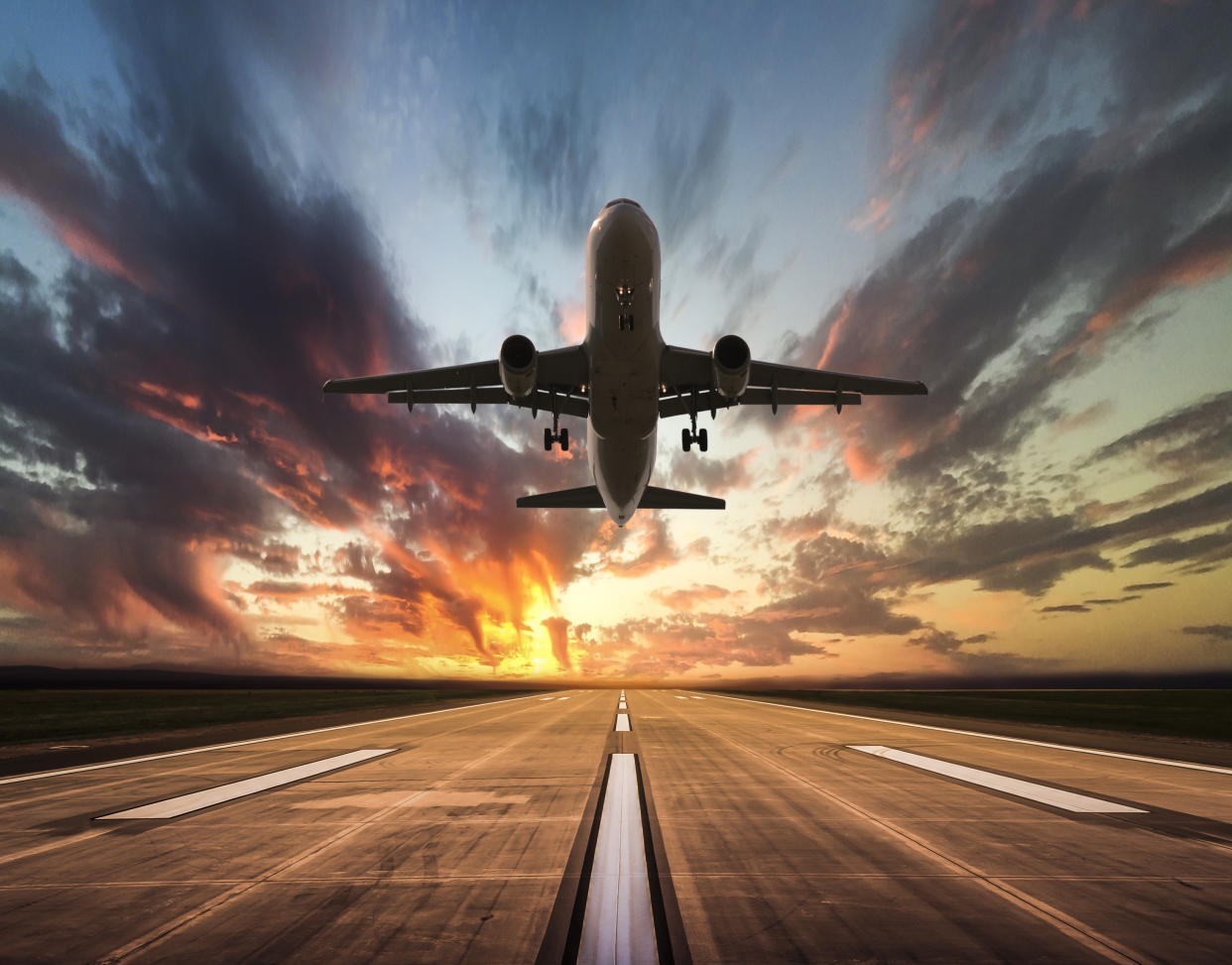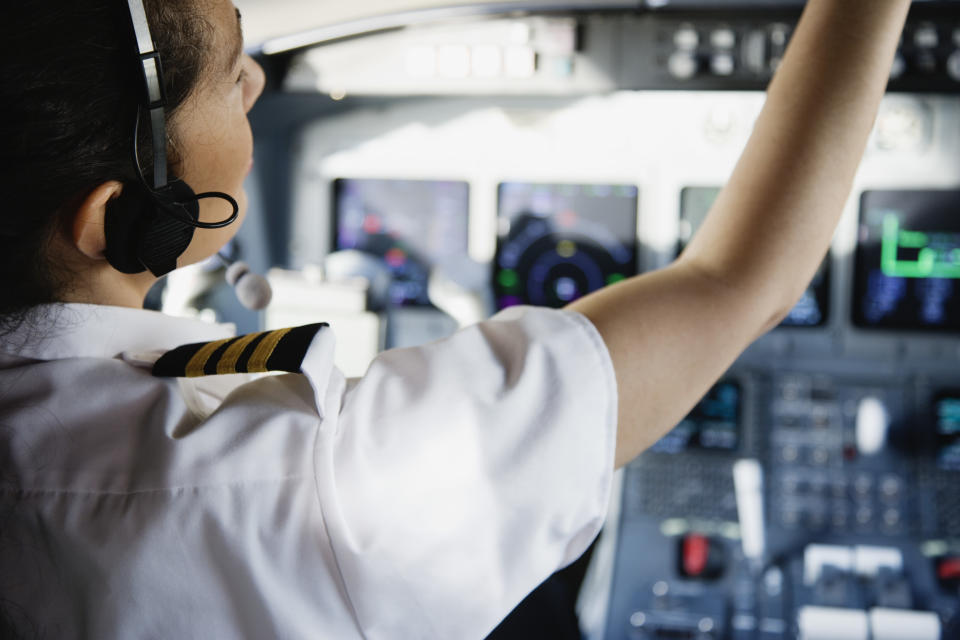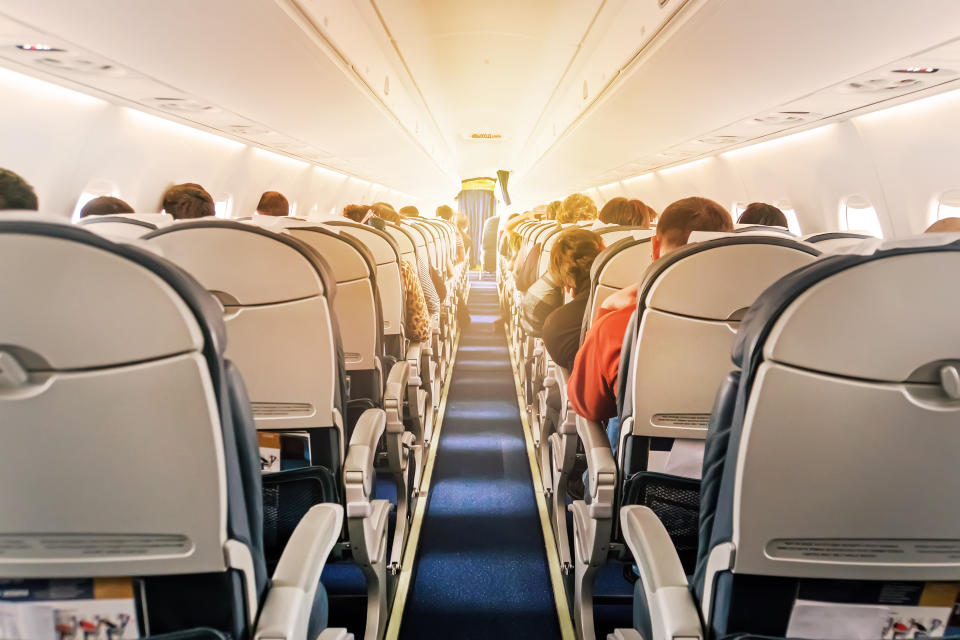I tried to cure my fear of flying with hypnosis

I wasn’t always scared of flying, I used to travel a lot in my uni days and never had a problem. I even lived in Europe for two years and loved going from country to country.
And then one day, all of a sudden, I was terrified.
It’s difficult to estimate, but it’s believed that between six and 18 percent of the population have a fear of flying. For some, it’s crippling, and means sacrificing all overseas travel.
For others, like me, it makes getting on a plane a really uncomfortable experience.
Captain Ron Nielsen, who runs Fearless Flight in the US, says it can manifest in a number of ways, from the ‘white-knucklers’ “whose death grip on the armrests, literally causes their knuckles to go white”, to the ‘avoiders’, “who will do anything to avoid flying including lying and making up excuses to get out of any family or business travel involving flying.”
However, he says it all comes back to the fear of flying being a form of anxiety disorder.
A pilot’s take on fear
“It’s the brain’s fight-or-flight response run amok,” Captain Ron tells Yahoo Lifestyle, “The underlying issue is control; either lack of or feeling out of control.”
“The myriad of unfamiliar sights, sounds, and sensations during a routine flight serve as constant reminders that the average person really doesn’t understand much of what is normal about a routine flight.
“Add to those triggers the fact that we are wired to anticipate the ‘worst possible scenario’, and you’ve got all the makings for a miserable experience.”

Bad fliers will recognise this as heart palpitations, rapid breathing or sweaty palms, for others it may manifest as a nervous stomach, throbbing head, tingly hands or light-headedness.
However, if we look at the facts, modern day commercial air travel is the safest mode of transport you can engage in.
At any given time thousands of planes are completing safe and uneventful flights, and as an Australian, you’re infinitely more likely to run into misadventure while driving or walking, than you are on an airbus.
I’m acutely aware of all this, and yet, the anxiety is still there.
So I tried hypnosis
While there are certain techniques you can use to lessen your fear while on a flight, I went down the professional route.
Trained therapists and counsellors can help break down your anxiety, I saw hypnosis specialist and elite business coach, Daniel Tolson, who uses a technique called ‘timeline therapy’ to confront and dissolve fear.
Far from the showmanship of stage hypnotists, there is no quacking involved in this kind of treatment – rather, it’s a session where you’re completely in control of the process and are guided through a timeline of your present, future, past and any past lives (quirky, I know).
To describe one of the processes simply, it involves taking your mind to a place where you feel happy, safe and comfortable, and then bringing those feelings into a present situation where you feel scared.
For example, as you start to feel anxious while on a plane, close your eyes and picture your future self after you’ve arrived safely and successfully at your destination. Once you’re there, notice how you feel in that moment, perhaps you’ve just been reunited with family or friends, or perhaps you’ve settled into a hotel room and are getting a good night’s rest before your holiday begins.
When you’ve locked onto that feeling, bring it back to your current point in time, and hold onto the feeling of your safe and happy future self until the anxiety eases.

It takes a bit of practice (and a lot of belief) to do this yourself, and in a session, hypnosis is used to guide you through this process as an immediate way to feel more in control of your fear.
It’s all about control
A perceived lack of control is what makes many people fear flying, but as Daniel reminded me; sure, you may not know the pilot, or the service history of the plane, or who built it – but the same can also be said for the bus, train or ferry you take for your daily commute.
Or what about the building you work in (assuming you do) – do you know the people who built it? Do you know how regularly checks are carried out to ensure its safety? And yet, you don’t spend your daily commute or your working day feeling like you’re not in control.
What we are in control of (most of the time) is the way we choose to react to certain scenarios. So I’ve been trying to couple my visions of a happy and safe arrival with attempts to feel more in control of my anxiety.
Unnecessary baggage
Stress and anxiety negatively impact our health both in the long and short term - and not just mentally.
A host of common physical ailments including headaches, digestive disorders, chest pain, and low libido can be caused by anxiety, as well as the risk of more serious conditions developing over time.
“Many people grow used to the uncomfortable feelings they are experiencing and take these as part of ‘normal’ life,” Australian author and former anxiety sufferer, Pauline McKinnon, tells us.
“Many people don’t in fact realise that their life could be better if they addressed issues that are concerning them. It’s long been known that ‘a problem shared is a problem halved’ – an old adage that carries much truth. Today of course, there are countless therapists from various disciplines to assist.”
She suggests meditation and exercise as great ways to combat stress and anxiety, as well as a healthy diet, breathing techniques and perseverance.
“One must have the desire to change, make the commitment to the decision/therapy/technique of choice, and persist with the therapy until results are apparent and then maintain that indefinitely for long term benefits.”

So, did it work?
Well, the jury’s still out. My first flight after trying hypnosis was the smoothest I’ve had in a very long time - both physically and emotionally - but I’m worried the lack of turbulence may be skewing the results.
Either way I felt much better, until I broke one of Daniel’s cardinal rules. Throughout our session, he kept reminding me not to talk about my fear of flying.
Whenever someone brings it up, change the subject, he said. And then I decided to sit down and write this article, and now I don’t feel so comfortable about taking to the skies again.
Got a story tip or just want to get in touch? Email us at lifestyle.tips@verizonmedia.com
Want more lifestyle and celebrity news? Follow Yahoo Lifestyle on Facebook, Twitter and Instagram.
Or sign up to our daily newsletter here.

 Yahoo Lifestyle
Yahoo Lifestyle 

